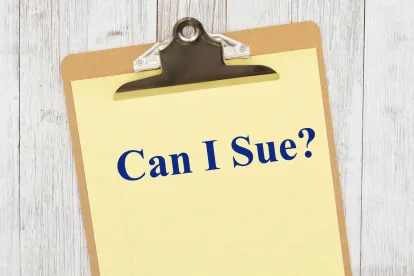Know Your Civil Rights
Nobody is above the law. Law enforcement and other government work is a high calling of service. People deserve to trust the police and the government. Almost always, law enforcement officers and government employees earn and deserve that trust. Sadly, citizens sometimes suffer abuses with excessive force or betrayal of confidence by law enforcement and other government officials. In today's world, people want to know: what happens when public officials don't act right, and you are hurt?
What Is a Section 1983 Civil Rights Lawsuit?
Congress passed a law to take our constitutionally protected freedoms and give a single citizen the ability to hold a government employee responsible for violating those freedoms. This law is found in the United States law books at 42 U.S. Code § 1983. You may have heard it called a "1983 civil rights" lawsuit. It gives an individual the right to bring a private lawsuit against a government employee to fix civil rights violations when that government employee violates those rights. There are two important things to remember about 1983 civil rights lawsuits:
1. Civil Rights
Section 1983 protects an individual against a violation of civil rights. Basically, it protects rights guaranteed by the United States Constitution, what you learned about with the Bill of Rights, like:
- freedom of speech,
- freedom to exercise your religion,
- freedom from excessive force (like an unnecessary violent arrest),
- freedom from improper search or seizure (like a search conducted with no search warrant), or
- freedom from cruel and unusual punishment (like bad medical care in jail or prison).
2. Color of State Law
This means that the person who violated your rights must have been acting with the power of the government or "under color of state law." Courts say that means the violator had some sort of authority from state law. For example, a state law enforcement officer (like an ALE officer or SBI agent) acts under the color of state law when they arrest or search you; a city police officer or county sheriff's deputy acts under the color of state law when they are on the job; and a detention officer at a county jail or corrections officer at a state prison acts under color of state law because they are acting on the authority given to them by the government.
Ultimately, a 1983 civil rights lawsuit allows individuals who have had their civil rights violated by a state or local employee—such as an election official, police officer, school resource officer, or sheriff's deputy—to bring a lawsuit against that official.
Complex Nature of a 1983 Civil Rights Lawsuit
Holding a government employee responsible under a 1983 civil rights lawsuit is complicated. It requires knowledge of both state and federal laws. A government employee who violated your civil rights often has strong defenses that can lead to a judge dismissing the claim. The individuals whose rights were violated have to prove their cases. Usually, these cases are in the federal court system.
It can be difficult to prove that the wrongdoer acted under the color of law. The government employee typically must be on the job and acting inside the normal scope of that job when the violation occurs. While police officers and jail or prison employees often come to mind as the typical government employee who would violate your civil rights, it could be any number of other government employees, like an election official or school board employee, or even a health care provider who works for the government.
Even if you can show the government employee acted under the color of state law when they violated your rights, they can claim "qualified immunity" as a defense. Qualified immunity allows a government employee to get away with their actions unless so shockingly bad that everyone should have known the actions violated their civil rights. Qualified immunity also requires that your particular civil right violated was clearly established in a prior lawsuit before this government actor violated it.
That may seem simple, but government employees have used the qualified immunity defense to avoid responsibility in the past for things that seem obvious to normal folks. Put simply: this defense has stacked the deck against victims of civil rights violations. You deserve to work with attorneys who understand how to outmaneuver a complex qualified immunity defense.
The statute of limitations presents another defense that can defeat an otherwise good 1983 civil rights lawsuit. Typically, the statute of limitations for a 1983 lawsuit in North Carolina is two or three years from the date of the violation, but it could be shorter depending on the specific constitutional violation. Whatever statute of limitation applies, you must bring your claim before it expires, or you can never bring it.
Protect Your Rights
Civil rights lawsuits brought under 1983 are very complex. You owe it to yourself to hire an attorney who has the experience and ability to protect your rights and the skill to guide any lawsuit or legal claim to the best possible outcome. Make sure that your lawyer can explain the immunity defenses that can defeat your 1983 civil rights lawsuit so you do your best to protect your rights.




 />i
/>i
